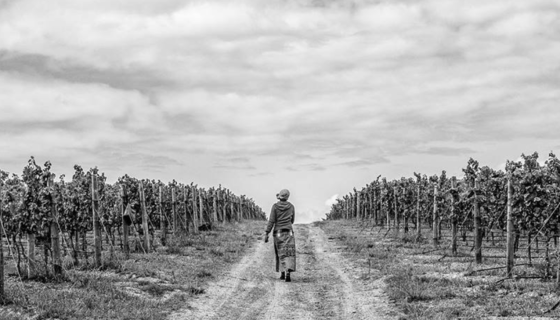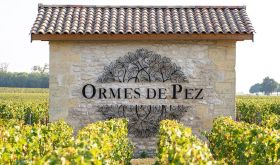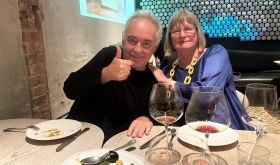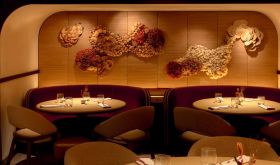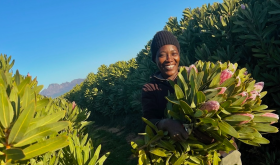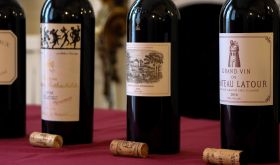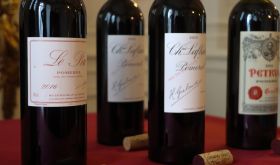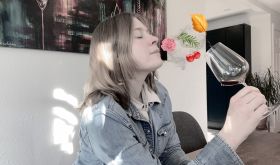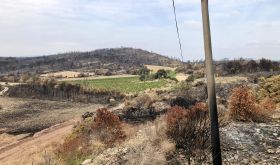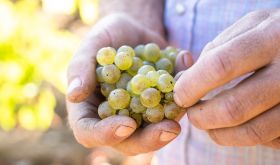Alisa Knoblauch writes Alisa Knoblauch grew up in the wine capital of South Africa, Stellenbosch. Being surrounded by excellent wine and world-class wine estates from an early age inspired her to become increasingly involved in this industry. Her wine journey started as a wine tasting steward during her studies. She has completed her WSET Level 3 and is currently living in Cambridge, UK where she works at one of the UK's leading independent wine merchants as Marketing and Digital Content Manager.
Rebuilding a Nation
Regenerate, reinvent, renew. These words are nothing new to a country like South Africa. We've seen our fair share of injustice, division and suffering. And yet, like the Swartland's dry, arid lands, a lot of new life is bursting from the scorched earth. The beauty of a nation that humbly, time and time again, comes together and rebuilds. One might call it 'hope'.
One of the recent catastrophes to shake South Africa (and the world) to its core was the COVID19 pandemic. By no means was the Rainbow Nation the only country severely affected by the virus. Still, the implications and long-term effects sting deeper in a developing country lacking an economy, infrastructure and safety net of the government to catch its people.
The South African wine industry knows this well. It contributes around R55 billion (£2,8 billion) to the local economy and employs nearly 269,000 people. However, strict pandemic-induced lockdowns saw multiple nationwide alcohol bans for months, resulting in an industry-wide stand still. This was not without reason on the government's part and merely a desperate attempt to protect people and the fragile healthcare system.
During the local ban on wine sales, SA wine producers and the general public appealed to the broader international wine community for support. Social media the world over was abuzz with #SaveSAWine and #DrinkSouthAfrican, and importers, sellers, and consumers listened. Thanks to the success of these campaigns, we saw good growth in export volumes in 2021, particularly in traditional markets such as the UK, while branching out into the US, China and Africa – hugely encouraging and invaluable in keeping wine farms and countless livelihoods afloat.
Now, post-pandemic, there is still a lot of rebuilding that needs to take place. Factors such as glass shortages, export and import challenges at Cape Town harbour, inflation spikes and droughts are significant hurdles on the road to recovering SA's wine industry. But, luckily, and this is true of the South African spirit, you can't keep a good man down.
The zest for innovation and overcoming these obstacles is evident in the new generation of South African winemakers. They are learning which grape varieties are best suited for their varied terroirs, considering drought-tolerant rootstocks, cultivars and clones and using water more efficiently. Restrictions on herbicides and fungicides continue, often replacing them with regenerative and biological control measures. They are approaching the vineyard as an integrated ecosystem, where vines, soil, and surrounding flora and fauna have equal parts to play.
Prime examples are Andrea and Chris Mullinuex, from Mullineux and Leeu Passant wines. They are growing cover crops on their Swartland property, Roundstone, to nourish the soil with rich micro-life and moderate soil temperature. Another Swartland local and world-renowned winemaker, Eben Sadie, uses the same regenerative techniques, planting various cover crops, from triticale, barley, wheat, white and yellow mustard, lupins and fava beans to compete with unwanted weeds in the vineyard. In addition, these plants help bring the evaporation down on his often drought-stricken land. Planted at low density to suit the warm climate of the Swartland, the Mullineuxs and Sadie prefer cultivating bush vines on these terrains as they provide more foliage and better shade for protecting the grapes.
Elsewhere in SA, on top of combatting drought, winegrowers are going to great lengths to conserve the lands they were entrusted with. Anthony Hamilton Russel, for example, of Hamilton-Russel and Ashbourne Vineyards, has set aside large areas to preserve wildlife and the area's natural biodiversity in the Hemel-En-Aarde valley. As a result, leopards roam around Ashbourne, where vineyards are populated with species-diverse permanent cover crops and fynbos (a type of vegetation unique to this area of South Africa, characterised by evergreen hard-leaved shrubs and almost no trees). Vondeling Wines in the Paardeberg mountains is part of the Paardeberg Sustainability Initiative (PSI). It has an environmentally sensitive approach to farming and minimal intervention during the winemaking process to let the wines' origins speak for themselves. And there are many more like these producers.
Since 2004 the World Wide Fund for Nature (WWF) has been working with environmental leaders in SA's wine industry, like the Mullineuxs, Sadie and Hamilton-Russel, to protect precious natural habitats in the Cape Winelands area (where 95% of SA's wines are grown). The Succulent Karoo and the Cape Floral Kingdom are global biodiversity hotspots found nowhere else on earth. To this date, 55 wine farms have signed up to be part of this project, known as Conservation Champions, and the list is growing. The Integrated Production of Wine (IPW) sustainability seal is granted to these wine producers in exchange for their commitment to biodiversity-friendly and regenerative farming and conserving their natural environments.
Thanks to the IPW and Wine of Origin (WO) schemes, South Africa is internationally recognised as a forerunner of traceability and environmentally sound practices. Commitment to sustainability extends to social and economic spheres and is achieved by investing more in employees through skills development and training programs, often through online learning platforms. Situated on the Hamilton Russell estate, The Hemel-en-Aarde Valley pre-school illustrates the winery's commitments to social sustainability. It aims to aid less privileged children in the community in their early education journey, resulting in long-term academic success and better employment opportunities. Exceedingly these jobs are being created in the wine tourism industry – attracting millions of visitors each year (in pandemic-free times) to a country with an unemployment rate of 35%.
SA's wine industry is an excellent example of how challenges lead to creative and new ways of thinking and doing. There is a great deal to overcome, but we have the guts, optimism and "hustle" to try until we succeed. The world needs more pioneers to help reshape and envision a better future, and the southern tip of Africa should not be overlooked. Watch this space; South Africa is 'ripe' with potential and leading the way to a more sustainable, conscious and integrated wine world – one we can all be proud of.
Resources
- South African wine industry resilient, adopting tools to be more sustainable, competitive (Creamer Media’s Engineering News)
- Jamie Goode: Why regenerative viticulture is important (Wine Mag)
- Conservation Champions (WWF)
- Building resilient vineyards (Wines Of South Africa)

